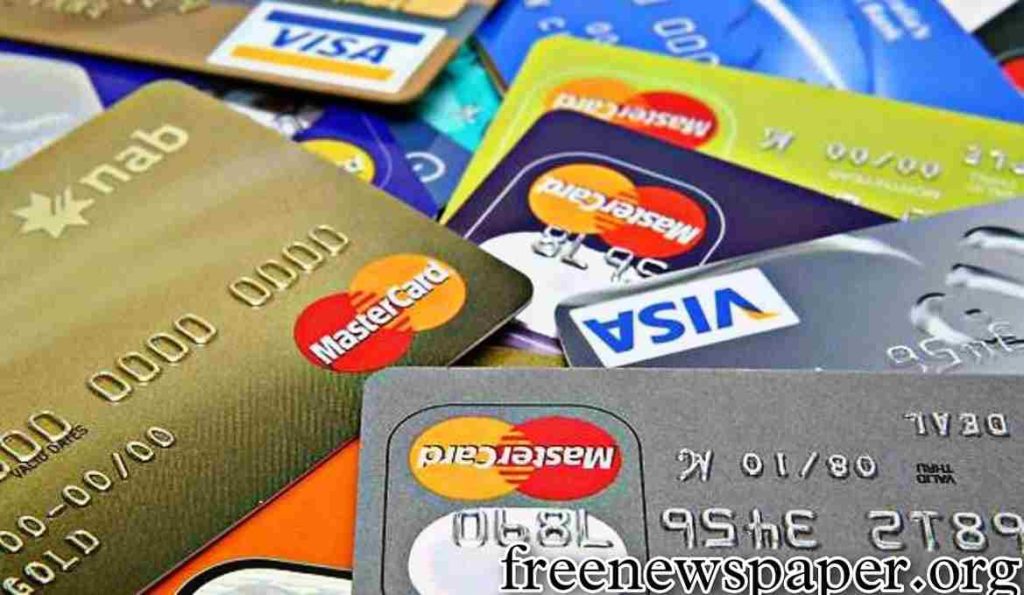Consider this: Debit or credit? the cashier is asking you as you approach the register or POS.
If you’re like most people, you’ve probably been asked this question countless times, but when was the last time you gave it some serious thought?
Which card was better? Did you give it some thought, or did you just reach for the first card you saw in your wallet? When was the last time you used your debit card for something other than an ATM?
We’re delving into the distinctions between the benefits and drawbacks of both credit and debit cards today. You’ll discover:

- How each kind of card functions.
- The benefits and drawbacks of each card.
- How to decide which card is ideal in every purchasing scenario.
What Is the Difference Between Debit and Credit?
What is a Credit Card?
Here is how credit cards operate. A card corporation, such as Visa, Mastercard, American Express, or Discover, often issues credit cards.
When you are granted a credit limit by a card issuer after being accepted, you can use that credit limit to make purchases rather than utilizing funds from your own bank account.
You also promise to pay off any outstanding balance on the card by the due dates each month. Any outstanding debt is subject to interest, which on certain cards can reach 22%.
By offering you money to spend any way you choose and requesting payback later, your credit card functions as a sort of microloan lender.
Your credit card is a wallet-sized payment card that is often made of plastic. It has a magnetic strip, raised card information, and an EMV chip.
Every business with a card reader or POS terminal that accepts payments from your credit card issuer can accept your credit card for payment (for example, some merchants do not accept Discover cards).
What is a Debit Card?
A debit card is made of plastic, similar to a credit card, and often has an EMV chip and magnetic stripe.
How do debit cards function? Debit cards function similarly to writing a check since they are linked directly to your bank account.
When you use your debit card, money is automatically sent from your account to the retailer.
Although they are typically backed by the same corporations that provide credit cards, debit cards are issued by your bank.
You might be able to receive a credit card and a debit card from the same company if your bank participates in a credit card program with a certain issuer.
Can a debit card also be used as a credit card? Debit cards are accepted everywhere that credit cards are, however, they cannot be used in the same manner a credit card may postpone payment.
Pros and Cons of Credit Cards
Credit card loans last for one month and are paid off on the due date. The primary benefit of using a credit card is the ability to postpone payments for purchases.
You also just have to pay one bill each month as opposed to hundreds of smaller ones for each transaction.
Other benefits of credit cards include:
- Your credit history is aided by credit cards.
- For your purchases, they provide you perks like cash back, miles, or other benefits.
- improved protection against unauthorized charges. Instead of stealing from you and emptying your bank account, fraudsters use your credit card to make purchases from the issuer!
Negative aspects of credit cards
- Using credit cards carelessly or failing to make minimum payments might lower your credit score.
- High-interest rates result in greater overall costs.
- It’s simple to spend more money than you have.
Pros and Cons of Debit Cards
Debit cards’ main benefit is that you can’t use the money you don’t have to make purchases. Your debit card won’t allow a transaction if you don’t actually have enough money in the bank to cover it.
This is quite beneficial for those who are on a strict budget and don’t want to go beyond, as well as for people who have a history of credit card debt and want to be more aware of their checking account’s true status.
Debit card benefits also include:
Automatic money withdrawals provide you with a real-time snapshot of your budget.
Negative aspects of debit cards
- less safe. Your money will be promptly spent if your card is stolen.
- If you overdraw, you can be charged.
- Your credit score won’t improve with debit cards.
- You are now limited to using the funds in your bank.
Choosing the Right Card For Each Transaction
The most crucial factors to take into account when deciding whether to use credit or debit for a transaction are your budget, the quantity of the purchase, and your typical spending patterns.
Using a credit card provides you a beneficial grace period, improves your credit score, and may even enable you to earn rewards if you don’t have enough money in your bank account to pay for the item immediately or the transaction is significant and you’d want to pay it over time.
A debit card could be a better option, though, if you have a history of overspending, must keep to a strict budget, or want to avoid paying excessive interest rates.